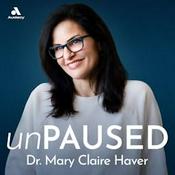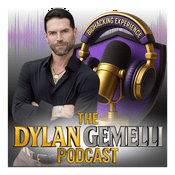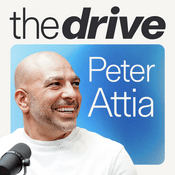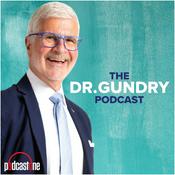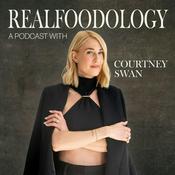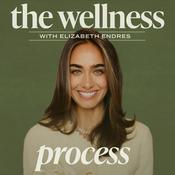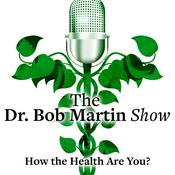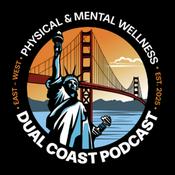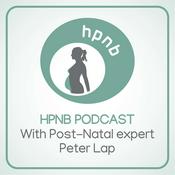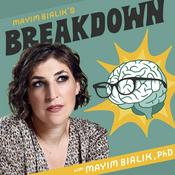Functional Medicine for Real-World Impact: The School of Applied Functional Medicine (SAFM)
Tracy Harrison
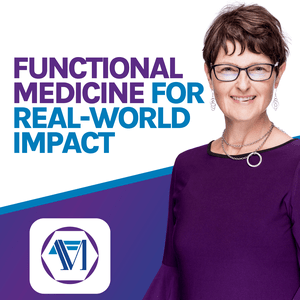
Latest episode
33 episodes
- Functional medicine becomes far more powerful when it slows down, listens closely, and focuses on simple changes that help patients reclaim trust in their own ability to heal.
In this episode, Tracy Harrison speaks with nurse practitioner Lisa Vasile about what functional medicine looks like when it is practiced with restraint, clarity, and real-world perspective. Lisa reflects on her journey through conventional nursing, women’s health, education, and her own celiac diagnosis, and how those experiences exposed the limits of symptom-based care. Rather than chasing answers through endless testing, she explains why understanding the person, setting expectations, and addressing foundational habits often leads to the most meaningful change.
The conversation challenges common assumptions in both conventional and functional medicine. Are patients truly unwilling to change, or have they simply never been given context and support? What happens when practitioners slow down and stop trying to fix everything at once? Through clinical stories and hard-earned insight, Lisa makes a case for simpler interventions, thoughtful timelines, and partnerships that help patients build confidence in their body’s ability to heal.
Episode Breakdown:
00:00 Introduction to Functional Medicine and Real-World Impact
01:31 Lisa Vasile’s Journey from Conventional Nursing to Functional Medicine
11:51 How Celiac Disease Changed Lisa’s Approach to Healing
16:11 Choosing and Building Sustainable Functional Medicine Practice Models
27:52 Patient-Centered Care and the Power of Listening
31:07 Common Pitfalls in Functional Medicine and When Less Is More
54:24 A Transformative Patient Story That Redefined Healing
Connect with Lisa Vasile:
Email: [email protected]
Visit 4betterhealthmedicine.com
Connect with Lisa on LinkedIn
Follow 4 Better Health on Instagram
4 Better Health's Facebook Page
SAFM Links:
Take SAFM’s 10 CME course - The Essential Gut Deep Dive
Get weekly Clinical Tips in your inbox
Learn more about SAFM’s practitioner training
Subscribe to our YouTube channel
Access daily quick tips on Facebook
Podcast production and show notes provided by HiveCast.fm - Iron can be both life-saving and quietly destructive and understanding when it fuels healing versus when it drives inflammation is one of the most important clinical distinctions practitioners can make.
This episode invites practitioners to rethink iron as more than a lab value to correct or a supplement to prescribe. Tracy Harrison reframes iron as a powerful regulator of energy, immunity, brain function, and inflammation, one that requires nuance and restraint rather than automatic intervention. The conversation challenges the assumption that low hemoglobin or fatigue always calls for more iron and asks a bigger question about when the body may be intentionally limiting iron as a form of protection.
Rather than chasing numbers, Tracy emphasizes clinical context, regulatory intelligence, and root cause awareness. Iron can support vitality when handled with precision or quietly amplify oxidative stress and chronic disease when misunderstood. The takeaway is a shift in mindset: slower assessment, better questions, and treatment decisions that respect the system rather than override it.
Episode Breakdown:
00:00 The Paradox of Iron in Functional Medicine
05:48 Why Ferritin and Full Iron Panels Matter
11:53 Inflammation, Hepcidin, and Iron Sequestration
15:12 Iron Balance Across Women’s Life Stages
17:55 Oxidative Stress, Chronic Disease, and Iron Overload
20:52 How to Supplement Iron Safely and Effectively
SAFM Links:
Take SAFM’s 10 CME course - The Essential Gut Deep Dive
Get weekly Clinical Tips in your inbox
Learn more about SAFM’s practitioner training
Subscribe to our YouTube channel
Access daily quick tips on Facebook
Podcast production and show notes provided by HiveCast.fm - A German-trained physician shares how functional medicine helped her finally understand why lifelong eczema persisted and what changed when she stopped chasing symptoms and started addressing immune overload.
In this episode, Tracy Harrison speaks with Julia Martin, MD, HC, about the gap between conventional medical training and real-world healing. Julia reflects on living with eczema since childhood, becoming a licensed physician, and realizing that much of what she learned focused on suppression rather than understanding why chronic conditions return. Discovering functional medicine shifted how she viewed immune activation, food sensitivities, and inflammation, leading to meaningful improvement in her own health.
The conversation explores Julia’s “inflammation bucket” framework, which explains how genetics, gut health, toxins, hormones, stress, and environment collectively shape symptoms over time. Rather than searching for a single trigger or cure, Julia emphasizes reducing overall immune load and empowering patients to respond calmly and confidently when flares occur. This episode shows how asking better questions and connecting systems can transform both practitioner confidence and patient experience.
Episode Breakdown:
00:00 From Conventional Medicine to Functional Medicine Impact
03:00 Living With Lifelong Eczema and the Limits of Symptom Suppression
07:22 The Functional Medicine Aha That Changed Everything
11:20 The Inflammation Bucket and Why Chronic Symptoms Persist
20:25 Root Causes of Eczema Including Gut Health Histamine and Immune Overload
39:59 Empowerment Over Panic A Real Eczema Breakthrough Story
Connect with Julia Martin:
Email: [email protected]
The Ex-zema™ Root Cause Solution
Facebook Group: Root Cause Solutions for Holistic Eczema Warriors 🌱
SAFM Links:
Take SAFM’s 10 CME course - The Essential Gut Deep Dive
Get weekly Clinical Tips in your inbox
Learn more about SAFM’s practitioner training
Subscribe to our YouTube channel
Access daily quick tips on Facebook
Podcast production and show notes provided by HiveCast.fm - What if your most powerful clinical tool is not another lab panel but the way you partner with patients around what their bodies already know?
Functional medicine PA Zoie Phillips joins Tracy Harrison to share how choosing integrity over a conventional career path led her to a values-based, telemedicine practice where patients act as true partners rather than passive recipients. She walks through her decision to commit to functional medicine straight out of PA school, her rocky attempt at a conventional job, and the moment she trusted her calling enough to wait for a role that actually fit. Along the way, Zoie explains how SAFM training helped her turn complex biochemistry into plain language, why education sits at the center of every visit, and how inviting patient intuition into the room often reveals clues no test would catch.
Zoie and Tracy also get honest about the slow, vulnerable early months of building a values-aligned practice, from financial reality checks and awkward networking attempts to the steady word of mouth that now fills Zoie’s schedule with patients who are ready to do the work. They talk about low stomach acid, trauma, and nervous system safety as hidden drivers of gut issues and explore why supplements alone never count as true root cause care. If you have ever wondered how to grow a functional medicine practice that honors your values, your bandwidth, and your patients’ autonomy at the same time, this conversation offers both caution signs and a hopeful, very human blueprint.
Episode Breakdown:
00:00 Functional Medicine for Real World Impact Introduction
01:38 Meet Functional Medicine PA Zoie Phillips and Upcurrent Functional Medicine
03:49 Choosing Functional Medicine Over a Conventional PA Career
11:21 Discovering a Calling and Vision for a Values-Based Practice
15:07 Turning Functional Medicine Science Into Clear Patient Education
20:43 From Paternalistic Care to True Functional Medicine Partnership
26:35 The Realities of Starting a Telemedicine Functional Medicine Practice
33:27 Money, Beliefs, and Building a Sustainable Functional Medicine Business
42:16 Building a Small but Mighty Functional Medicine Care Team
53:18 Low Stomach Acid, Trauma, and Root-Cause Gut Health
01:01:36 Letting Go of the “All-Knowing Expert” and Trusting Patient Intuition
Links
Zoie Phillips’ Functional Medicine Practice
Take SAFM’s 10 CME course - The Essential Gut Deep Dive
Get weekly Clinical Tips in your inbox
Learn more about SAFM’s practitioner training
Subscribe to our YouTube channel
Access daily quick tips on Facebook
Podcast production and show notes provided by HiveCast.fm - Hidden toxins in your air, products, technology and even inner dialogue may shape your patients’ physiology far more than their diet or exercise, and this conversation asks you to look at those influences through a sharper functional medicine lens.
In this episode, Tracy Harrison breaks toxicity down into categories such as indoor air quality, fragrance and phthalates, plastics and microplastics, overlooked heavy metals and the constant load from screens and EMF, then connects each one to hormone balance, sleep, energy, mood and long term disease risk in ways you can act on in clinic. She also points out what might be the most powerful “toxin” of all, the critical voice in a patient’s head that keeps their nervous system locked in survival mode and quietly blocks detoxification and healing even when the clinical protocol looks solid on paper.
Where could these hidden burdens be showing up in your patients’ homes, routines and thought patterns, and how might your plans change if you treated toxicity as a core clinical focus instead of a side note?
Episode Breakdown:
00:00 Introduction to Hidden Toxicity
02:48 Understanding Toxicity and Its Impact
10:49 Sources of Hidden Toxicity
18:25 The Role of Heavy Metals and Plastics
27:42 The Psychological Aspect of Toxicity
33:51 Conclusion and Clinical Implications
Links
Take SAFM’s 10 CME course - The Essential Gut Deep Dive
Get weekly Clinical Tips in your inbox
Learn more about SAFM’s practitioner training
Subscribe to our YouTube channel
Access daily quick tips on Facebook
Podcast production and show notes provided by HiveCast.fm
More Health & Wellness podcasts
Trending Health & Wellness podcasts
About Functional Medicine for Real-World Impact: The School of Applied Functional Medicine (SAFM)
Functional Medicine for Real-World Impact offers practical insights to empower healthcare professionals in transforming patient care through applied functional medicine. Join Tracy Harrison as she dives deep into the interconnected nature of physiology, lifestyle, and innovative interventions—bringing clarity to the science behind complex, chronic conditions. Each episode is packed with case scenarios, clinical pearls, and actionable strategies that practitioners can immediately apply for greater patient outcomes. If you’re ready to do your best work and elevate your clinical confidence, this podcast is your guide to meaningful, impactful change in healthcare.
Podcast websiteListen to Functional Medicine for Real-World Impact: The School of Applied Functional Medicine (SAFM), unPAUSED with Dr. Mary Claire Haver and many other podcasts from around the world with the radio.net app

Get the free radio.net app
- Stations and podcasts to bookmark
- Stream via Wi-Fi or Bluetooth
- Supports Carplay & Android Auto
- Many other app features
Get the free radio.net app
- Stations and podcasts to bookmark
- Stream via Wi-Fi or Bluetooth
- Supports Carplay & Android Auto
- Many other app features


Functional Medicine for Real-World Impact: The School of Applied Functional Medicine (SAFM)
Scan code,
download the app,
start listening.
download the app,
start listening.

